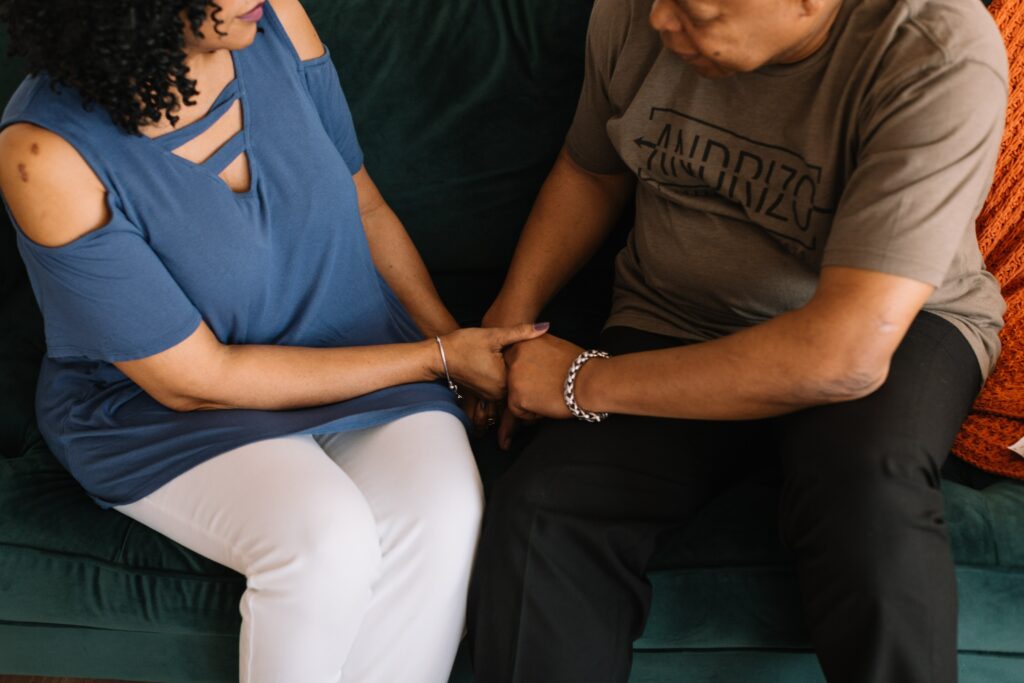
Home » Opioid Addiction » Opioid Detox: Timeline, Withdrawal, and Treatment
Opioid Detox: Withdrawal, Timeline, & Treatment
- Authored by Joe Gilmore
- Clinically Reviewed by Jenni Busse
- Last Updated 04/03/2024
- By Joe Gilmore
- Reviewed by Jenni Busse
- 04/03/2024

Opioid Detox
Opioid detox often lasts longer than detoxing from other substances and it’s also one of the most uncomfortable as symptoms can persist up to two weeks depending on length of opioid abuse. Despite that, symptoms can still be mitigated with the use of FDA-approved medications.
Opioid detox is not intended as a cure for opioid addiction. Opioid use disorder is a chronic and incurable brain disorder characterized by the compulsive use of opioids regardless of adverse outcomes. Neither is opioid detox designed to be a substitute for rehab. Instead, opioid detoxification provides a pathway to ongoing science-backed treatment in an inpatient or outpatient treatment facility.
In almost all cases, supervised clinical detoxification at a licensed medical detox center will offer the safest and most comfortable route to ongoing treatment.

What Is opioid Detox?
Opioid detox is a process where you discontinue the use of opioids, allowing the toxins to leave your system.
Detox is the first vital stage in the ongoing process of opioid addiction treatment. Detox alone is unlikely to provide a solid foundation for sustained recovery without relapse, though. Ongoing treatment after detox can equip you with the coping skills and support you need to move from inpatient or outpatient opioid rehab into ongoing recovery.
Opioids are prescribed to treat moderate and severe pain. Taking any type of opioids can trigger various side effects, including:
- Drowsiness
- Relaxation
- Slowed breathing
- Less sensitivity to pain

Effects of Opioids
Additionally, ingesting opioids delivers an intense feeling of euphoria. The rewarding, pleasurable high is the factor that prompts many people to abuse opioids. The strong abuse and addiction potential associated with this class of drug means that prescription opioids are classified as Schedule II controlled substances, while the semi-synthetic drug heroin is classified under Schedule I.
Opioids target opioid receptors in your brain, spinal cord, and GI (gastrointestinal) tract. This class of medication relieves pain at the same time as triggering euphoria. The rewarding high associated with opioids occurs when the medication stimulates brain receptors and provokes an increase in dopamine production. Dopamine is a chemical messenger in the brain – a neurotransmitter – linked to positive feelings. In most cases, the habitual use of opioids is predicated on a desire to relive the euphoric high.
The long-term use of any opioids, even when used as prescribed by a physician, causes tolerance to build. As this occurs, the effects of opioids are diminished. This often prompts abusive patterns of consumption involving increased consumption of opioids or increased frequency of doses. Taking more opioids is likely to accelerate the development of physical dependence. Those dependent on opioids will experience withdrawal symptoms as the effects of the medication wear off. If you are physically dependent on opioids, your body is accustomed to the continual presence of the medication. Withdrawal symptoms are a physical and psychological response from your system.
All opioids, whether prescription painkillers, heroin, morphine, or fentanyl are associated with the presentation of similar withdrawal symptoms during detoxification.
Withdrawal Symptoms
The most reported opioid withdrawal symptoms include:
- Nausea
- Diarrhea
- Depression
- Anxiety
- High blood pressure
- Increased body temperature
- Body aches and pains
- Vomiting
- Sweating
- Fever
- Chills
- Insomnia
- Muscle pains and cramping
- Rapid heart rate
Opioid Withdrawal
Opioid withdrawal is usually less dangerous from a medical standpoint than detox from alcohol or sedative-hypnotics. That said, opioid withdrawal can still be challenging and uncomfortable.
Those who attempt to abruptly discontinue the use of opioids at home without medical liaison often relapse simply to alleviate withdrawal symptoms. This is much less likely to happen if you engage with a supervised medical detox.
For those unable to cope with medical detox in an outpatient setting, an inpatient opioid detox is the most effective route to ongoing treatment. Inpatient detoxification is also advisable for those dependent on more than one drug, and for those with co-occurring physical or mental health conditions.
In many cases, opioid detox coincides with the initiation of MAT (medication-assisted treatment). As we’ll outline below, MAT can be beneficial both during opioid detox and throughout ongoing treatment. Medications can reduce the intensity of opioid withdrawal symptoms and may also encourage abstinence as you move from addiction into ongoing recovery.
How Long Does Opioid Detox Take?
Opioid withdrawal varies in terms of onset and duration depending on factors that include:
- Type of opioids used.
- Severity of opioid use disorder.
- Interval between opioid doses.
- Duration of opioid abuse.
Short-acting opioids – heroin, fentanyl, oxycodone, and hydrocodone, for instance – are associated with withdrawal symptoms that present shortly after the last use. Withdrawal symptoms for short-acting opioids peak on the third day of opioid detox, typically persisting for about one week.
Long-acting opioids like morphine, methadone, and controlled-release oxycodone trigger protracted withdrawal symptoms that take longer to present.
These factors can all impact the intensity of opioid detox:
- Physical health
- Mental health
- Genetics
- Blood concentration levels of opioids
- Length of opioid abuse
- Extent of opioid abuse
- Type of detox (home detox or supervised medical detox)
Opiate Withdrawal Medications
There are three medications approved by the FDA for treating opioid use disorder:
Buprenorphine
Buprenorphine can ease the symptoms of opioid withdrawal during detox. The medication is a partial opioid agonist that also blocks the euphoric effects of opioids. It’s also highly recommended that you wait a certain amount of time before beginning Buprenorphine. If taken too early, Buprenorphine can cause precipitated withdrawals.
Naltrexone
Naltrexone is an opioid antagonist that blocks the rewarding effects of opioids. Those dependent on opioids who take naltrexone will experience withdrawal symptoms. This medication is typically administered after opioid detox. To minimize complications with dosing, naltrexone is available as a monthly injectable.
Methadone
Methadone is a synthetic opioid agonist that binds to opioid receptors in the brain, potentially easing withdrawal symptoms during opioid detox. In large doses, methadone can induce euphoric effects. The medication can be beneficial during ongoing MAT for opioid addiction, although it can also be habit-forming.
MAT always delivers more positive outcomes when combined with psychotherapies like CBT (cognitive behavioral therapy).
Along with these, things like gabapentin for opioid withdrawal is also an option as it can help the severity of a number of problems including muscle tension, severity of coldness, dysphoria, and more. Other medications that may be administered during opioid detoxification include:
- Antidepressants
- Benzodiazepines
- Tapering medications
- Anti-nausea medications
- Sleep aids
Opioid Dependence and Withdrawal Symptoms
Everyone will have a unique experience of opioid withdrawal. Despite a variation in presentation, most opioid withdrawal symptoms occur in the first 24 hours after discontinuing use. The most common symptoms include:
- Anxiety
- Restlessness
- Muscle aches
- Runny nose
- Eyes tearing up
- Excessive sweating
- Opioid withdrawal insomnia
- Restlessness
Symptoms typically become more intense over the following days, and may include:
- Abdominal cramps
- Diarrhea
- Accelerated heart rate
- Nausea
- Vomiting
- Opioid withdrawal seizures
- Blurry vision
- High blood pressure
Don’t Let Opioid Addiction Hold You Back
Detox from Opioids with Gratitude Lodge
Opioid Withdrawal Timeline
Withdrawal symptoms can be painful and unpleasant but will usually start to improve after 72 hours of opioid detox. After one week, most acute symptoms of opioid withdrawal should subside.
Most symptoms of opioid withdrawal symptoms manifest from 12 to 48 hours after the last dose, depending on factors including the type of opioid. Opioid detox lasts from four to ten days.
Here is a typical opioid withdrawal timeline:
Day 1
The withdrawal symptoms associated with short-acting opioids present from 12 to 24 hours after the last dose. Immediate withdrawal symptoms liable to present on day one of opioid detox include:
- Cravings
- Irritability
- Aggression
- Anxiety
- Depression
- Muscle pains
- Body aches
- Headaches
- Appetite loss
- Insomnia


Day 2
With long-acting opioids, withdrawal symptoms present from 24 to 48 hours after the last dose. In addition to the above withdrawal symptoms, you might experience:
- Panic attacks
- Excessive sweating
- Runny nose
- Upset stomach
Day 3
Short-acting opioid withdrawal symptoms peak on day three of detox. The most reported symptoms during this phase of detox are nausea, vomiting, and diarrhea. Medications can help mitigate these issues.
Day 4
Long-acting opioid withdrawal symptoms peak day four of detox. The following withdrawal symptoms may accompany the symptoms outlined above:
- Dilated pupils
- GI disturbances
- Tremors
- Cramps
- Fatigue
Day 7
After one week of opioid detox, most withdrawal symptoms will subside. These adverse side effects may linger:
- Depression
- Insomnia
- Fatigue
In the event of PAWS (post-acute withdrawal syndrome), symptoms may persist for months after detoxing from opioids. The symptoms most commonly associated with PAWS include:
- Episodes of depression
- Fatigue
- Powerful cravings for opioids
- Disrupted sleep patterns
- Irritability
Is Our Opioid Detox Treatment Covered By Insurance?
Since the enactment of the ACA (Affordable Care Act) in 2010, health insurance plans must provide at least partial coverage for opioid addiction treatment. Some health plan may cover the complete cost of treatment, while others may require you to pay an out-of-pocket contribution.
The cost to you of opioid addiction treatment with health insurance will depend on your policy co-pay and deductible.
At Gratitude Lodge, we can help you establish whether your insurance is eligible for opioid detox and ongoing treatment. We are happy to work with most PPO health providers, and we also offer alternative financing options for those not covered by PPO plans. Check your insurance eligibility with Gratitude Lodge in Southern California right here.
Opioid Detox Treatment Success Rates
Research shows that up to 90% of those who detox from opioids return to using opioids within months. This does not mean that detoxification is ineffective. Rather, it is vital to focus on long-term treatment involving MAT and psychotherapy before approaching the issue of opioid detox. Indeed, there is minimal clinical utility in opioid detox without a plan for ongoing maintenance treatment.
That said, the right opioid opioid addiction and dependence drug detoxification program can achieve many goals integral to recovery from opioid addiction:
- Counter the issue of physical dependence on opioids
- Reduce the intensity of opioid withdrawal
- Address underlying medical conditions
- Prevent relapse by streamlining withdrawal and providing a connection to ongoing treatment
- Offering education about the risk of relapse and overdose in early recovering
- Facilitating MAT for opioid use disorder in continued treatment
DRUG ADDICTIONS WE TREAT
Our Partners
WE ACCEPT MOST PPO INSURANCE
Drug and alcohol detox should be accessible to everyone. At Gratitude Lodge,
we work with most insurance plans to cover the costs of treatment.
Get Help at Our Opioid Detox Treatment Program Today
We can help you fight back against all kinds of opioid addictions at Gratitude Lodge in Southern California, including:
To build the strongest possible foundation for sustained recovery, streamline opioid withdrawal at our licensed opioid detox centers in Newport Beach.
We have pet-friendly and inclusive rehab centers located in Newport Beach and Long Beach. All Gratitude Lodge treatment centers offer supervised medical detox programs for opioid addiction.


















